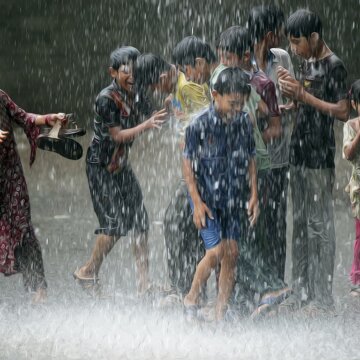- About
- Topics
- Story
- In-Depth
- Picks
- Opinion
- News
- Donate
- Signup for our newsletterOur Editors' Best Picks.Send
Read, Debate: Engage.
| topic: | Digitalisation |
|---|---|
| located: | Pakistan |
| editor: | Shadi Khan Saif |
The very strength and potential of a society could prove to be detrimental if it is abused or abandoned to transform into negative energy.
When it comes to Pakistan, it has been the case with its promising young population, which has either been misguided for the pursuit of the state’s ambitious strategic plans or largely left to live a miserable life in deprivation of opportunities to rise and shine.
With the ever-changing globalised world of ours, youth from this country of over 200 million have to dodge an array of hidden and evident barriers in the digital arena to seek information, education and opportunities.
Just recently, the Asia Internet Coalition – who's members include the giants of Silicon Valley such as Facebook, Twitter, and Google – said it was “alarmed by the scope of Pakistan’s new law targeting internet companies, as well as the government’s opaque process by which these rules were developed.
It has clearly warned that the data localisation requirements by the state forces in Pakistan will damage the ability of people to access a free and open internet, and shut the country’s digital economy off from the rest of the world. The members say that the new rules would “make it extremely difficult for AIC Members to make their services available to Pakistani users and businesses.”
“If Pakistan wants to be an attractive destination for technology investment and realize its goal of digital transformation, we urge the Government to work with industry on practical, clear rules that protect the benefits of the internet and keep people safe from harm.”
Now, let us take it in the context of the very few jobs created for youth by the government in Pakistan, and the lack of earnings in the era of Covid-19 pandemic. Add further layers of economic hardships the country faces for being in the ‘grey list’ for lenders due to the alleged failure of curbing money laundering.
Now the fear is that the little window of opportunity many young Pakistanis had in the digital arena to financially support their selves and their families would now be shut. This is only set to add to the feelings of resentment and marginalisation that have already forced many youngsters to revert to desperate measures, including joining the ranks of militants and terrorists.
Currently, 64 per cent of the nation is younger than 30 and 29 per cent of Pakistanis are between 15 and 29 (an age group which we define as the youth). Pakistan now has more young people than it has ever had, and this is forecasted to continue to increase until at least 2050.
Whatever fears the state forces in Pakistan might have from an open internet, if they are very pressing, which is hard to believe, they should at least discuss it in the public sphere for the sake of transparency and confidence-building among the youth.
Images by irfanarif666

